Research the Company and the Role
A phone interview can be a daunting process, but with the right preparation, you can be confident that you are ready to take on the challenge. One of the most important things you can do to prepare for a phone interview is to research the company and the role.
Start by taking the time to familiarize yourself with the company’s mission and values. This will give you insight into their company culture, which will be important to understand and demonstrate during the interview. Additionally, understanding the company’s goals and objectives will give you the opportunity to craft questions for the interviewer that demonstrate your knowledge and interest in the company.
Next, take the time to really understand the job description and the responsibilities that come with the role. Research the duties and qualifications necessary for the position, and make sure you’re prepared to answer questions related to the role. You can also use this opportunity to determine how you’d be a great fit for the job by highlighting skills and experience that are most relevant.
Finally, take the time to look up the company’s competitors and recent news. Having a full understanding of the company’s market position will give you the opportunity to ask relevant questions to the interviewer, and it will also show that you’ve done your due diligence.
Overall, research is essential when preparing for a phone interview. Taking the time to understand the company, the role, and the competitive landscape will give you the opportunity to ask the right questions and demonstrate your knowledge and understanding. Additionally, it will show the interviewer that you’ve done your research and that you’re genuinely interested in the role and the company.
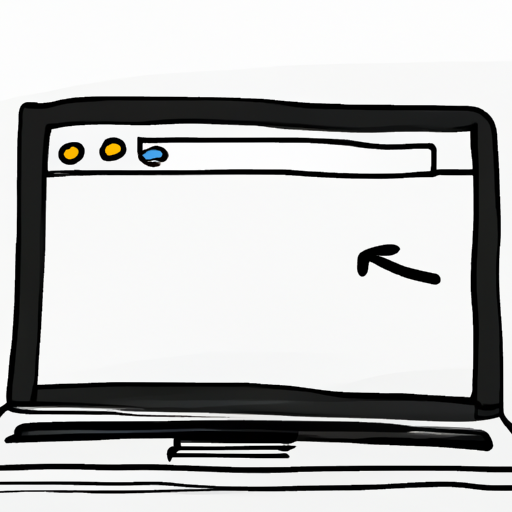
Get Comfortable with Technology
Phone interviews are often a daunting prospect for job seekers, as many are unsure about how to make a successful impression without the benefit of face-to-face interaction. The key to a successful phone interview is preparation — and that includes getting comfortable with the technology.
Today’s phone interviewing process can be quite sophisticated. The interviewer may ask you to log into a video conferencing system or use a phone-based app to answer questions. This can be intimidating if you’re not used to the technology. Fortunately, there are ways to get comfortable with these tools before the interview.
To start, make sure you have the right equipment. You’ll need a reliable phone, microphone, and speakers. You should also have a strong internet connection and a webcam if the interviewer will be asking you to log into a video conferencing service. Once you’ve got the right equipment, you should practice using it.
Next, familiarize yourself with the interviewer’s preferred technology. If you’ve been asked to use a specific phone app or video conferencing service, take the time to download it and learn how it works. This will help you feel confident when it comes time to answer questions.
Finally, practice with a friend. Ask a friend to conduct a mock interview with you over the phone or on a video conference. It’s a good way to get comfortable with the technology and make sure you know how to answer questions clearly and concisely.
By taking the time to get comfortable with technology, you’ll be able to put your best foot forward during the phone interview. Not only will you be able to answer questions with confidence, you’ll also be able to make a positive impression on the interviewer. With a little bit of preparation, you’ll be well on your way to success.

Prepare Answers to Common Interview Questions
One of the best things you can do to prepare for a phone interview is to think of potential questions you may be asked and prepare answers in advance. Many interviewers ask the same questions of all of their candidates, so it’s important to have a well-thought-out response ready to go. Here are a few common questions and some tips on how to craft an impressive answer.
When asked “Tell me a bit about yourself?”, it’s important to talk about your professional experience and accomplishments rather than your personal life. Start with your current job, and then offer a quick overview of your career history. Highlight any unique skills or experiences that might be relevant to the position, and explain why you’re the perfect candidate for the job.
When asked why you are interested in the position or the company, do your research! Show that you understand the company’s mission, and that you want to be part of a team that is striving for similar goals. Explain why you are passionate about the field, and why you think this position would be a great fit for you.
When asked about your greatest accomplishment, pick a story that showcases your strengths and highlights the skills and qualities that make you a great candidate. This is a great opportunity to show your problem-solving ability, so describe a situation where you took initiative, handled a difficult challenge, or created a successful solution.
When asked to describe a difficult situation and how you handled it, this is your chance to show the interviewer that you are an effective problem solver. Describe a difficult situation that you encountered, and then explain the steps you took to resolve it. Be sure to focus on the positive outcome and how you used your skills and resources to solve the problem.
When asked about your weaknesses, be honest, but don’t be too hard on yourself. Focus on areas that you have already taken steps to improve. For example, if you don’t have a lot of experience with a certain software program, explain what steps you are taking to learn it.
Finally, when asked if you have any questions for the interviewer, make sure you have a few prepared. This is an opportunity to get to know the company and to show that you are an engaged, thoughtful candidate. Ask questions about the role, the project, or the team.
By preparing answers for these common interview questions, you can be confident that you will be able to answer them thoughtfully and impressively when the time comes. Being prepared for a phone interview is an important part of the job search process, and it can go a long way in helping you land the job.
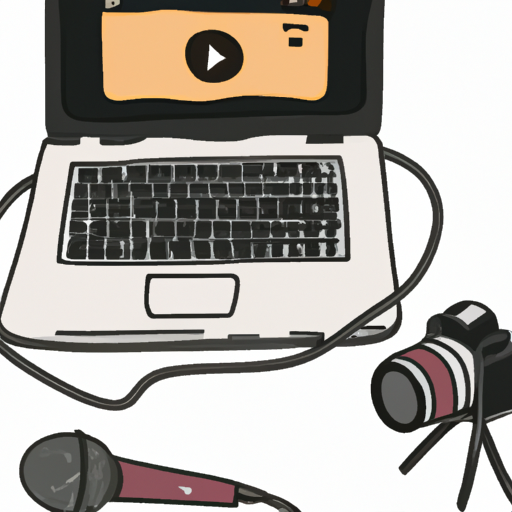
Choose a Suitable Environment
When it comes to preparing for a phone interview, one of the most important elements is ensuring that you select an appropriate environment. The environment that you choose will have a major impact on your ability to effectively communicate with the interviewer and answer the questions that they may have.
When choosing an environment, you should select one that will allow you to focus and remain distraction-free. To do this, you should select a quiet room or space that is free from any noise or distractions. You should also make sure that you turn off any devices that may cause a distraction, such as your phone or laptop. If you are easily distracted by your own noise, such as tapping or humming, you should also ensure that you are in a quiet space.
In addition to selecting a quiet space, you should also make sure that the environment you choose is comfortable. You should be able to sit in a comfortable chair, have a suitable desk or table to place your laptop or phone on, and have access to any other materials that you may need during the interview, such as a pen and paper. Your environment should be comfortable enough that you can remain relaxed and focused during the interview.
Finally, you should make sure that your environment is well-lit. When having a phone interview, the interviewer will be able to hear what you are saying, but they may not be able to see you. To ensure that your interviewer can see you and your facial expressions, you should ensure that you are in a room with good lighting. This will help you to make a good impression and help the interviewer to gain a better understanding of who you are.
By selecting a suitable environment for your phone interview, you can ensure that you remain focused, comfortable, and well-lit. This will help you to make a great impression and give you the best opportunity to succeed in the interview.

Practice Your Tone and Body Language
Phone interviews can be a great way to get ahead in the job hunt, but it’s important to prepare for them just as much as you would for an in-person interview. One of the most important aspects of preparing for a phone interview is to practice your tone and body language. It is essential to project confidence and enthusiasm over the phone, as this will make a huge impact on the interviewer.
The key to mastering your tone and body language is to practice. You can practice by standing in front of a mirror and having a conversation with yourself. Make sure you are speaking in a clear, professional voice. Do not speak too quickly or too slow. Make sure your intonation is appropriate and that you are emphasizing the right words. Also, focus on your posture while you practice. Stand up straight, as this will help you to project a sense of confidence.
Another great way to practice your tone and body language is to record yourself. Record yourself talking about your experience, achievements, and qualifications in a clear and professional manner. Listen back to your recording and make sure you are speaking in a confident and upbeat tone. It may seem strange at first to practice in front of a mirror or record yourself, but the more you do it, the more natural it will become.
It is also important to be aware of your body language during a phone interview. Even though the interviewer can’t physically see you, they will be able to tell if you are slouching or not paying attention. Make sure to sit up straight, relax your shoulders, and keep your arms uncrossed. These small body language cues will make a big difference in the way you come across over the phone.
Lastly, make sure to smile while you talk. Smiling, even while on the phone, can make a huge impact on the interviewer. It will make you sound more confident and upbeat, and it will also make you feel more relaxed.
By taking the time to practice your tone and body language, you will be able to make a great impression during your phone interview. Make sure to practice as much as possible and remember to smile while you talk. With a little preparation, you will be sure to make a lasting impression on the interviewer.

Prepare Your Own Questions
Preparing for a phone interview is a great way to make sure that you are ready to make the best impression on potential employers. One of the most important elements of preparing for a phone interview is coming up with your own questions. Being able to ask questions of your own will show that you are knowledgeable, prepared, and engaged with the process.
The questions you choose to ask during a phone interview should be directly related to the position that you are applying for. For example, if you are applying for a customer service role, you might ask questions like: “What kind of customer service training is offered?” or “What is the most challenging customer service issue that you have faced?”
You can also ask questions that are related to the company itself. Questions such as “What is the company culture like?” and “What are the long-term goals of the organization?” can show that you have done your research on the company and that you are invested in the role.
When crafting your questions for the phone interview, make sure that you are being thoughtful and creative. You want to make sure that you stand out from other candidates, so think of unique questions that will show off your personality and your enthusiasm. For example, rather than asking what the company culture is like, you could ask what the company does to create a positive environment for its employees.
In addition to asking questions that are related to the role and the organization, make sure to ask questions about the interviewer themselves. Showing interest in the interviewer’s career path and background can demonstrate your interest in the interview process and can help to break the ice.
Asking great questions during a phone interview can help to demonstrate your knowledge and enthusiasm. Make sure to craft your questions ahead of time so that you are fully prepared and that you can make the best impression. With thoughtful and creative questions, you can demonstrate that you are the perfect candidate for the position.
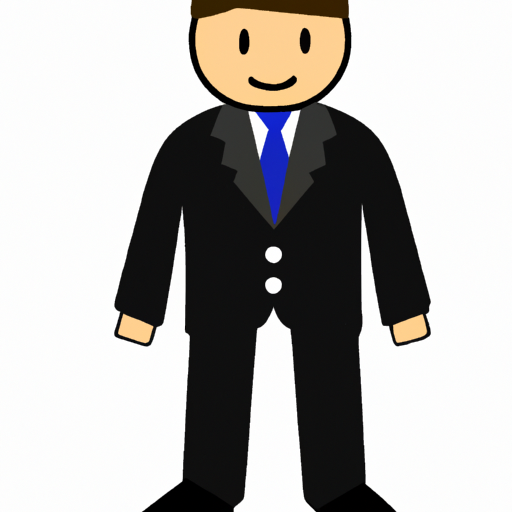
Dress Professionally and Presentably
When it comes to phone interviews, it is important to remember to dress professionally and presentably. No matter the job or type of interview, the way you present yourself can leave a lasting impression, and you want it to be a good one. While you may not be personally seen by the interviewer, it is still important to dress as if you were.
The key to dressing professionally and presentably is to make sure you are neat and put together and that your clothing is appropriate for the job you are interviewing for. If you are interviewing for a professional position, you will want to wear a suit or a dress shirt and trousers. If you are interviewing for a more casual position, you may opt for a nice blouse and trousers, or a skirt and blouse. Whatever you choose, make sure it is clean, pressed and wrinkle-free. Additionally, it is important to wear clothing that fits your body type and is comfortable, so that you can feel relaxed and confident during the interview.
Don’t forget about accessories and personal grooming. Jewelry should be kept to a minimum and make sure your hair is neat and styled. If you are unsure of what to wear, err on the side of caution and go for a more conservative look. Make sure to wear little to no makeup, and don’t forget to check your nails and teeth for any dirt or debris.
When it comes to shoes, make sure they are comfortable and appropriate for the job you are interviewing for. Avoid any flashy or overly trendy shoes, and make sure they are clean and polished. It is also important to remember to wear socks that match your clothing.
Finally, make sure to be aware of your body language during the interview. Even though you are not physically in the room, your body language can still be detected by the interviewer. Make sure to sit up straight, keep your eyes focused and engaged, and maintain a pleasant, professional demeanor.
Dressing professionally and presentably for a phone interview is an important part of the interviewing process. By following these tips, you can make a great impression and be sure to stand out from the competition.
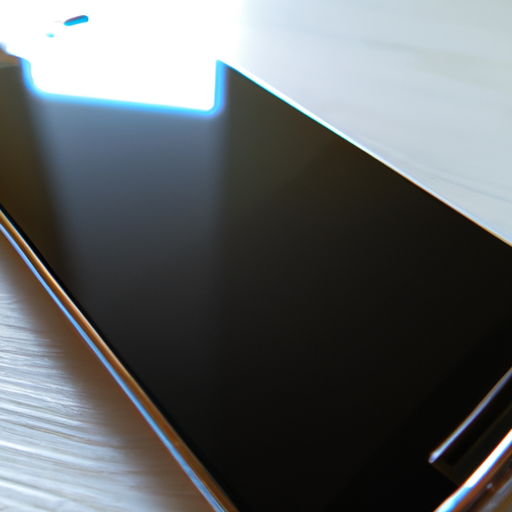
Check Your Phone Settings
Before you dial into a phone interview, it’s important to make sure that your phone settings are in order. If your settings are not properly configured, it could create distractions and affect the clarity of the conversation. To ensure that you’re prepared for your phone interview, follow these steps to check your phone settings:
First, make sure that the volume settings on your phone are adjusted to an appropriate level. You want to be able to hear the interviewer clearly and make sure your voice is audible. Secondly, check that the microphone and speakers are properly connected and that the sound isn’t muffled or distorted.
Thirdly, if you’re using a headset to take the call, make sure it is comfortable and fits securely. During a phone interview, you don’t want to have to adjust your headset or have it slip off. Also, test out the sound quality of the headset to make sure it isn’t producing any static noise.
Fourth, turn off any notifications or alerts on your phone that could be distracting. You don’t want any notifications popping up while you’re in the middle of your interview. Additionally, be sure to check that you have enough battery life on your phone.
Fifth, if you’re using a laptop computer or tablet, make sure that the volume settings are turned up and that the microphone and speakers are properly connected. Also, check that the sound quality is clear and that there is no static noise coming from the speakers.
Finally, if you’re using a landline, make sure that the phone cord is properly connected and that the settings are adjusted to an appropriate level. You don’t want to be struggling to hear the interviewer or for them to struggle to hear you.
By taking the time to check your phone settings before a phone interview, you can ensure that the conversation will run smoothly and that you’ll be able to focus on the questions that are being asked. Your goal is to make a great impression, and making sure that your phone settings are in order is an easy way to accomplish that.
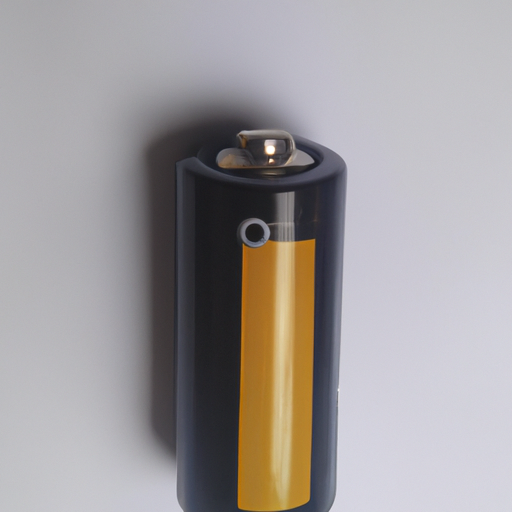
Check Your Connectivity and Battery Life
Being prepared for a phone interview is essential for success. A great way to ensure your interview goes as smoothly as possible is to check your connectivity and battery life before you dial in. It’s important to make sure you have a strong internet connection, as a slow connection could make it hard to understand the interviewer or to answer their questions. Additionally, a low battery life could make you look unprepared and unprofessional.
To make sure you don’t have any connectivity or battery problems during your phone interview, it’s important to check your phone one hour before your scheduled call time. This will give you time to find a better location if needed, or to charge your phone if your battery life is low. Furthermore, be sure to test your microphone and headphones beforehand to make sure they are working properly.
When checking your phone’s battery life, it’s also a good idea to turn off any unnecessary apps and disable your push notifications. This will help to conserve your battery power and prevent you from being interrupted during your interview. Additionally, if you’re using your laptop for the interview, be sure to turn off your Wi-Fi when you’re not using it. This will help to prevent any unexpected disconnects due to a weak signal.
It’s also a good idea to have a backup plan in case your phone or laptop fails you during the interview. For example, if you’re using your laptop for the call, make sure you have a separate phone handy in case you get disconnected. This way, you can call back right away and not miss any important questions or conversation.
Preparing for a phone interview doesn’t have to be stressful. By taking the time to check your connectivity and battery life beforehand, you can ensure a smooth and successful interview. With these simple steps, you can make sure you look and sound your best during your call, and show the interviewer that you are the ideal candidate for the job.

Stay Positive and Confident
Phone interviews can be nerve-wracking and overwhelming, but there’s one surefire way to ensure a successful interview: staying positive and confident. It’s easy to become overwhelmed with self-doubt and anxiety when preparing for a phone interview, but the best thing you can do is to prepare and be confident in yourself.
Start by taking a few deep breaths. Visualize yourself succeeding in the interview and remind yourself of all the great qualities and experiences you have to offer. Remind yourself that you have already made it through the initial screening process, and that the employer is interested in having a conversation with you.
Focus on the positive aspects of the job and the potential opportunity. Visualize yourself thriving in the role and succeeding in the organization. Allowing yourself to become excited and passionate about the potential of the job will help you stay positive and confident.
Before the call, make sure you have all the materials you need to succeed in the interview. Have your resume and portfolio in front of you, along with any notes you’ve taken about the company and the position. This will help you stay organized and efficient during the interview.
Additionally, practice answering common interview questions. This will help you become more comfortable with the process and more confident in your responses. If possible, practice your answers with a friend or family member. This will help you practice your verbal and non-verbal responses and improve your communication skills.
During the call, pay attention to your body language. Sit up straight, maintain eye contact, and smile when appropriate. This will help you to project a positive and confident attitude, even over the phone.
Finally, don’t be afraid to ask questions. Asking questions shows that you are engaged, interested, and prepared. Showing that you have done your research and are curious about the position will help you stand out from the other candidates.
Phone interviews don’t have to be intimidating. By remaining positive and confident, you can make the best impression and secure the job. Good luck!





